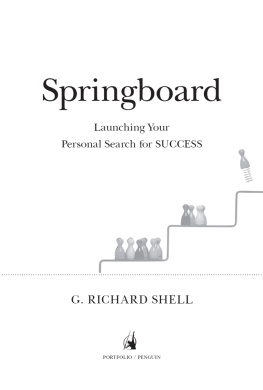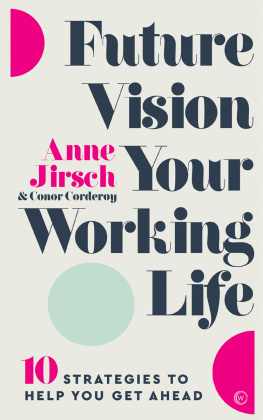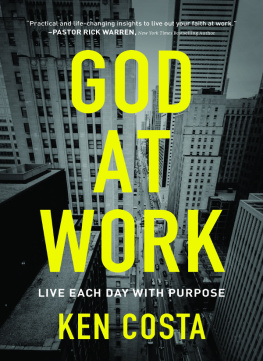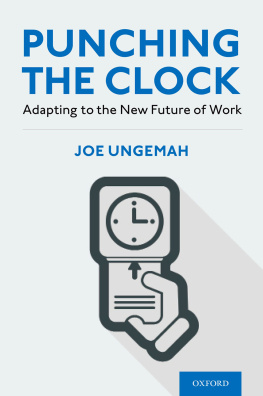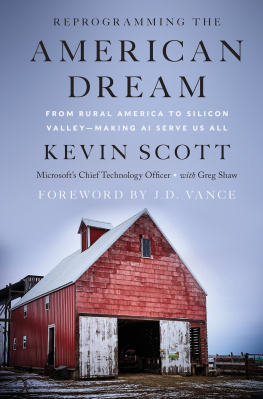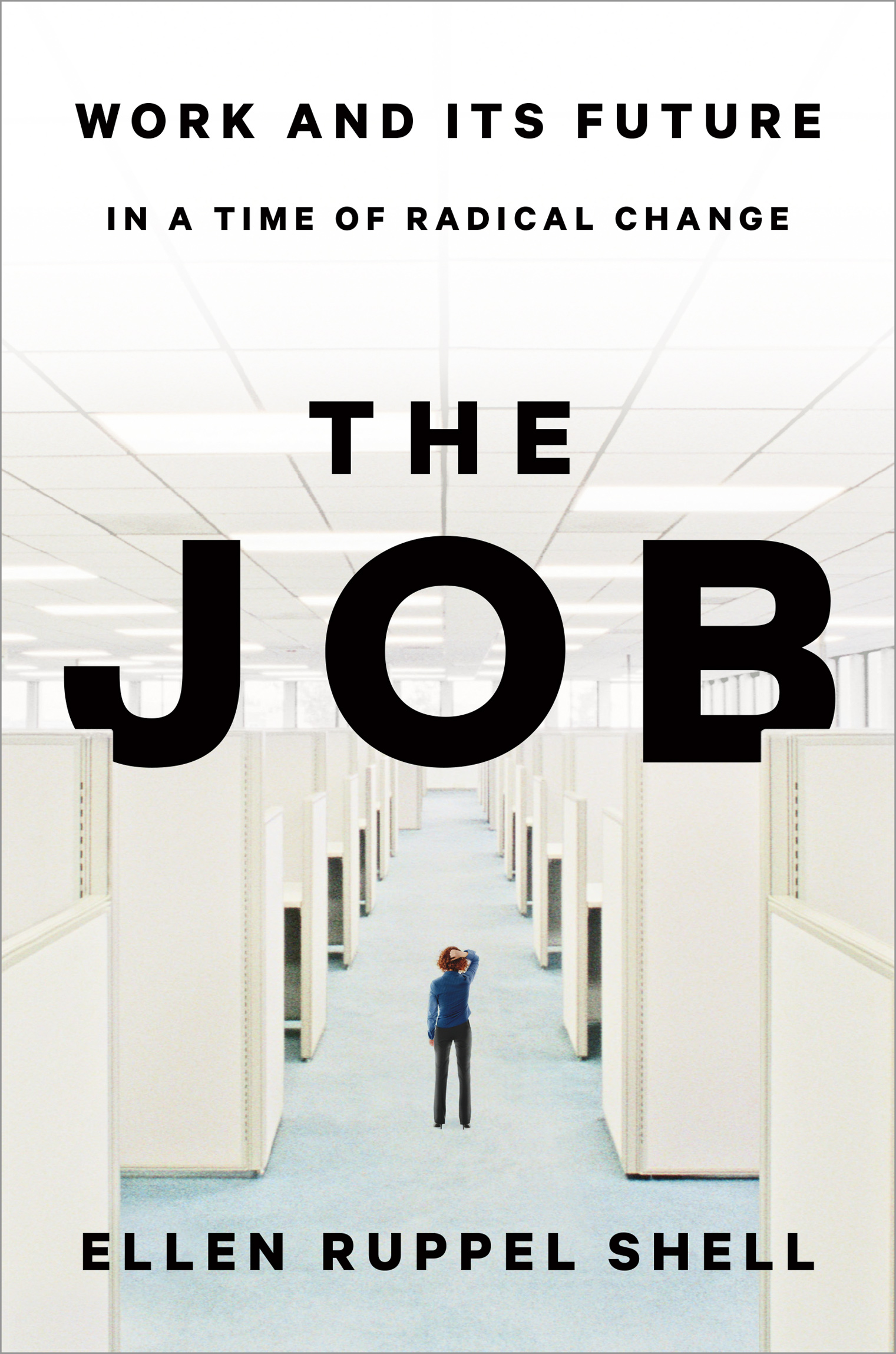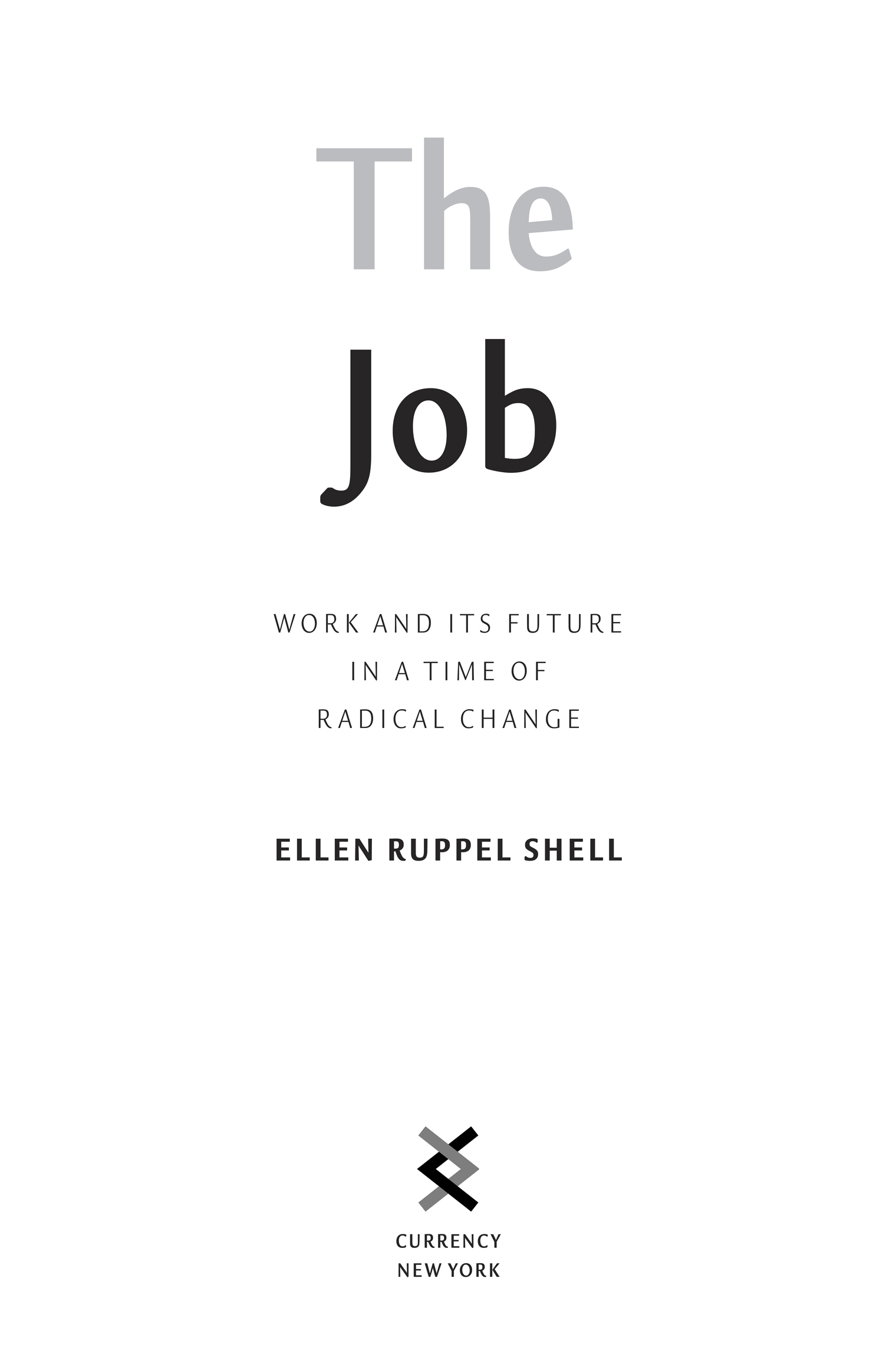All rights reserved.
Published in the United States by Currency, an imprint of the Crown Publishing Group, a division of Penguin Random House LLC, New York.
CURRENCY and its colophon are trademarks of Penguin Random House LLC.
Library of Congress Cataloging-in-Publication Data is available upon request.
In the highest sense, work is meant to be the servant of man, not the master.
Introduction
A Measure of Our Sanity
A mans work does not satisfy his material needs alone. In a very deep sense, it gives him a measure of his sanity.
ELLIOTT JAQUES
Work holds dominion over us. Its through work that we exercise our talents and build an identity, through work that we fit into this world. And while our most cherished memories dont always revolve around our jobs, our hopes and dreams for our futureand the future of our childrengenerally do.
Americans are raised to believe in the sanctity of work: whether in school, at home, or from the pulpit, there is no higher praise than a job well done. Political hopefuls cant seem to say enough about workin stump speeches the word or its equivalent is more common than liberty and justice combined. In most matters rhetorical, even freedom takes a backseat to work.
Little wonder, then, that Donald Trumps campaign was built on a vow to return real work to Americas shores, to wrench twenty-five million jobs back from the grip of not fair trade treaties and bad deal immigration policies and lay them at our feet like the spoils of war. I will be the greatest job producer that God ever created, our future president bellowed. It will be amazing to watch. You watch, itll happen.
And watch we didhow could we not? Jobs mean so very much to us, and on so many levels. Americans spend more time on the job than in any other waking activity: roughly six times the amount we spend with our families. Jobs are not only our lifeline but our lifeblood, as individuals and as a society. The ebb and flow of job numbers shape our national mood: they steer financial markets, sway voters, and decide elections. They bring dread and hope. Yet while numbers can tell us a good deal about many things, they cant explain the way so many of us feel todaynamely, that work is just not working for us.
What were feeling is real. America was built on the grand career narrative, by which almost anyone could, through hard and concerted effort, scale the occupational ladder to a middle-class life and beyond. Not everyone followed that trajectory, but enough did to make it seem like a reasonable expectation. Thanks to this steady progress, the prospects of children were expected to exceed those of their parents. And throughout most of the last century, those expectations were largely met.
But that was then. In the twenty-first century, job growth has not led to a significant decline in poverty or to a rise in the middle class. Instead, the postindustrial digital economy has brought a trickle of fancy, high-paying jobs and a torrent of not-so-fancy low-wage jobs, and with them a soaring inequality that threatens the very premise of our free-market democracy: the promise that hard work will take almost any one of us where we needand wantto go.
Todays glaring uncertainties make navigating a career seem less like scaling a firmly braced ladder than like clawing up a rock face slick with ice, where any misstep can lead to disaster. Even kindergarteners are hip to the drill. Chris Brown, an educational researcher at the University of Texas, told me that five-year-olds quickly get the message that theyre supposed to worry not about now but about what comes nextfirst grade, middle school, high school, college, all pointed toward what theyll do in the future. And by that I mean the job.
Of course, its not unhealthy for youngsters to gravitate toward an occupation; many of us as children dreamed of becoming firefighters or teachers or ballerinas orspeaking for myselfa deep-sea diver. But how many of us recall our five-year-old selves being worried about getting a good job? A middle-class kid with dreams of becoming a deep-sea diver is one thing; a middle-class kid growing up fearful of her future is quite another.
This was not supposed to happen. On the contrary, the digital age promised abundance via unfettered access to information, networks, and markets by which each of us would captain our own destiny. Certainly, that promise was fulfilled for some. But technology did notas predictedlevel the playing field. On the contrary, it rutted that field with steeper peaks and deeper pits. Weve been taught to believe that the best way to prepare for a life of good work is to hone our skill set through formal education or training or a combination of both. But as well see, this advice is incomplete, as it fails to fully acknowledge that progress has its price.
One of the central lessons of artificial intelligence is that a variety of tasks that are easy for humans are difficult for machines, while a variety of tasks that are difficult for humans are easy for machines. For example, the tasks of giving manicures and pedicures or placing water glasses just so on a restaurant table, while rather easy for many humans, can be extremely difficult for a machine, while tasks that involve high-level reasoningbookkeeping, accounting, many banking functions, and the analysis of legal documents and medical scansare relatively easy for machines. For this and other reasons, skilled, middle-wage jobs are often more at risk of being reduced or eliminated by technology than are many low-paying jobs. The middle is under seige, and this does not bode well for our sweet American dreams.
A twenty-six-year-old entrepreneur I spoke with in Detroit put it this way:
The Internet hollows out the middle and elevates extremes. Whats in trouble is the in-between. To understand how this plays out on a corporate level, think about how we buy books. Customers can go online to track down rare volumes at a tiny bookstore run by some grumpy old guy, so there is still that niche market. And then theres the mass market, which is Amazon. But the people who worked at Borders Books and companies like it, welllets face it, those jobs are gone. And whats true for books is true for so many other industriesmost industries, actually.
The mantra of our time, Average is over, comes laced with an implicit threat that the middle no longer existsthat if youre not at the top, youre at or falling toward the bottom. But by definition, not all of us can be better than the rest. Rather, in most things humans tend to fall along a normal curve, a sort of inverted letter U with small numbers of us at each end and the vast bulk of us crowded into the middle. So clearly, if average is over, so are most of us, at least when it comes to a job suited to our needs, capabilities, and dispositions. At least, thats what many pundits argue and many of us have come to believe.



